#Methodist
Text
Ok folks raised or in the church, reblog this with your most insane church lore, drama, or scandal.
I'll go first. My church started out as a New England commune. They all shared one lawnmower.
#church#christian#presbyterian#methodist#baptist#Catholic#Orthodox#Protestant#anglican#episcopal#ex christian#church stories#christianity#christian stories#m#jesus#yes i was inspired by the responses to my hyper specific poll#yes i was more immediately inspired by my sister
72 notes
·
View notes
Photo
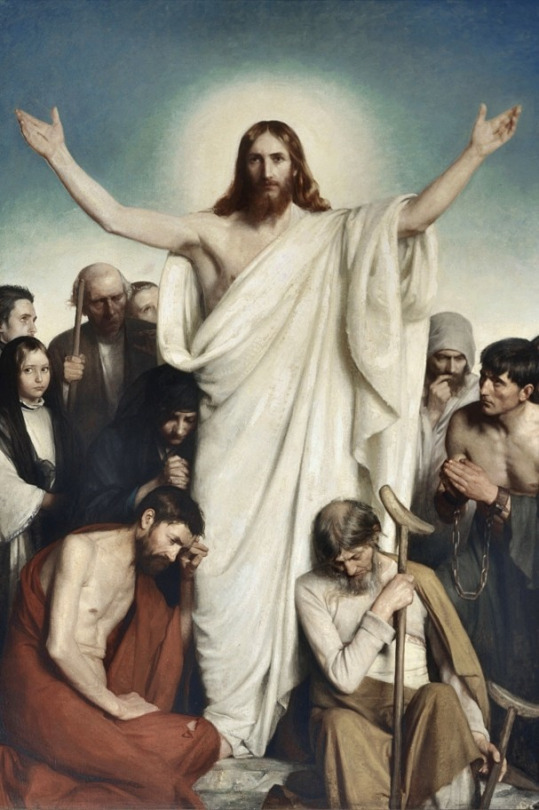
Carl Heinrich Bloch (Danish, 1834-1890)
Come Unto Me, n.d.
“Come unto me, all ye that labour and are heavy laden, and I will give you rest. Take my yoke upon you, and learn of me; for I am meek and lowly in heart: and ye shall find rest unto your souls. For my yoke is easy, and my burden is light” (Matthew 11:28-30). - The Bible.
#art#christian art#christianity#christentum#christendom#danish#danish art#come unto me#fine art#catholic#catholic art#roman catholic#roman catholic art#anglican#pentacostal#methodist#orthodox#finearts#Jesus Christ#The Son of God#Jesus#Christ#christian#bible#denmark#europe#european art#europa#european#prayer
296 notes
·
View notes
Text

"The original "Uncle Tom",
Rev. Josiah Henson and wife; Dresden ,Canada (c1907)
Josiah Henson (June 15, 1789 – May 5, 1883) was an author, abolitionist, and minister. Born into slavery in Charles County, Maryland, he escaped to Upper Canada (now Ontario) in 1830, and founded a settlement and laborer's school for other fugitive slaves at Dawn, near Dresden in Kent County. Henson's autobiography, The Life of Josiah Henson, Formerly a Slave, Now an Inhabitant of Canada, as Narrated by Himself (1849), is widely believed to have inspired the character of the fugitive slave, George Harris, in Harriet Beecher Stowe's Uncle Tom's Cabin (1852), who returned to Kentucky for his wife and escaped across the Ohio River, eventually to Canada. Following the success of Stowe's novel, Henson issued an expanded version of his memoir in 1858, Truth Stranger Than Fiction. Father Henson's Story of His Own Life (published Boston: John P. Jewett & Company, 1858). Interest in his life continued, and nearly two decades later, his life story was updated and published as Uncle Tom's Story of His Life: An Autobiography of the Rev. Josiah Henson (1876).
Josiah Henson was born on a farm near Port Tobacco in Charles County, Maryland. When he was a boy, his father was punished for standing up to a slave owner, receiving one hundred lashes and having his right ear nailed to the whipping-post, and then cut off. His father was later sold to someone in Alabama. Following his family's master's death, young Josiah was separated from his mother, brothers, and sisters.His mother pleaded with her new owner Isaac Riley, Riley agreed to buy back Henson so she could at least have her youngest child with her; on condition he would work in the fields. Riley would not regret his decision, for Henson rose in his owners' esteem, and was eventually entrusted as the supervisor of his master's farm, located in Montgomery County, Maryland (in what is now North Bethesda). In 1825, Mr. Riley fell onto economic hardship and was sued by a brother in law. Desperate, he begged Henson (with tears in his eyes) to promise to help him. Duty bound, Henson agreed. Mr. R then told him that he needed to take his 18 slaves to his brother in Kentucky by foot. They arrived in Daviess County Kentucky in the middle of April 1825 at the plantation of Mr. Amos Riley. In September 1828 Henson returned to Maryland in an attempt to buy his freedom from Issac Riley.
He tried to buy his freedom by giving his master $350 which he had saved up, and a note promising a further $100. Originally Henson only needed to pay the extra $100 by note, Mr. Riley however, added an extra zero to the paper and changed the fee to $1000. Cheated of his money, Henson returned to Kentucky and then escaped to Kent County, U.C., in 1830, after learning he might be sold again. There he founded a settlement and laborer's school for other fugitive slaves at Dawn, Upper Canada. Henson crossed into Upper Canada via the Niagara River, with his wife Nancy and their four children. Upper Canada had become a refuge for slaves from the United States after 1793, when Lieutenant-Governor John Graves Simcoe passed "An Act to prevent further introduction of Slaves, and to limit the Term of Contracts for Servitude within this Province". The legislation did not immediately end slavery in the colony, but it did prevent the importation of slaves, meaning that any U.S. slave who set foot in what would eventually become Ontario, was free. By the time Henson arrived, others had already made Upper Canada home, including African Loyalists from the American Revolution, and refugees from the War of 1812.
Henson first worked farms near Fort Erie, then Waterloo, moving with friends to Colchester by 1834 to set up a African settlement on rented land. Through contacts and financial assistance there, he was able to purchase 200 acres (0.81 km2) in Dawn Township, in next-door Kent County, to realize his vision of a self-sufficient community. The Dawn Settlement eventually prospered, reaching a population of 500 at its height, and exporting black walnut lumber to the United States and Britain. Henson purchased an additional 200 acres (0.81 km2) next to the Settlement, where his family lived. Henson also became an active Methodist preacher, and spoke as an abolitionist on routes between Tennessee and Ontario. He also served in the Canadian army as a military officer, having led a African militia unit in the Rebellion of 1837. Though many residents of the Dawn Settlement returned to the United States after slavery was abolished there, Henson and his wife continued to live in Dawn for the rest of their lives. Henson died at the age of 93 in Dresden, on May 5, 1883.
#Josiah Henson#Dresden#uncle tom#original uncle tom#american revolution#dawn township#kent county#methodist#preacher#tennessee#ontario#rebellion#dawn settlement#john graves simcoe#province#slaves#united states of america#united states#war of 1812#african#kemetic dreams#afrakan#africans#brownskin#afrakans#brown skin
66 notes
·
View notes
Text

trinity united methodist
#journal#southern gothic#rural gothic#mine#ethel cain core#southern gothic aesthetic#ethel cain#ethel cain coded#church photography#church#ethel cain aesthetic#southern gothic photography#ruralcore#rural kentucky#rural gothic aesthetic#rural south#southern church#methodist#churchcore
79 notes
·
View notes
Text
The Christianization of African-Americans
Postcolonial American culture's preoccupation with breaking away from Europe was far removed from the situation among Africans in the United States at the time. The initial tenacity with which African Americans held onto their indigenous practices and the reluctance of many Southern white slaveholders to teach Christianity to the slaves limited the Christianizing process in the early period. Even the Great Awakening of the 1740s, which swept the country like a hurricane, failed to reach the masses of slaves. Only with the Great Western Revival at the turn of the nineteenth century did the Christianizing process gain a significant foothold among black people.
The central questions at this junction are: Why did large numbers of American black people become Christians? What features of Protestant Christianity persuaded them to become Christian?
The Baptist separatists and the Methodists, religious dissenters in American religious culture, gained the attention of the majority of slaves in the Christianizing process. The evangelical outlook of these denominations stressed individual experience, equality before God, and institutional autonomy. Baptism by immersion, practiced by Baptists, may indeed have reminded slaves from Nigeria and Dahomey of African river cults, but fails to fully explain the success of the Christianizing process among Africans.
Black people became Christians for intellectual, existential, and political reasons. Christianity is, as Friedrich Nietzsche has taught us and liberation theologians remind us, a religion especially fitted to the oppressed. It looks at the world from the perspective of those below. The African slaves' search for identity could find historical purpose in the exodus of Israel out of slavery and personal meaning in the bold identification of Jesus Christ with the lowly and downtrodden. Christianity also is first and foremost a theodicy, a triumphant account of good over evil. The intellectual life of the African slaves in the United States —like that of all oppressed peoples— consisted primarily of reckoning with the dominant form of evil in their lives. The Christian emphasis on against-the-evidence hope for triumph over evil struck deep among many of them.
The existential appeal of Christianity to black people was the stress of Protestant evangelicalism on individual experience, and especially the conversion experience. The "holy dance" of Protestant evangelical conversion experience closely resembled the "ring shout" of West African novitiate rites: both are religious forms of ecstatic bodily behavior in which everyday time is infused with meaning and value through unrestrained rejoicing.
The conversion experience played a central role in the Christianizing process. It not only created deep bonds of fellowship and a reference point for self-assurance during times of doubt and distress; it also democratized and equalized the status of all before God. The conversion experience initiated a profoundly personal relationship with God, which gave slaves a special self-identity and self-esteem in stark contrast with the roles imposed upon them by American society.
The primary political appeal of the Methodists and especially of the Baptists for black people was their church polity and organizational form, free from hierarchical control, open and easy access to leadership roles, and relatively loose, uncomplicated requirements for membership. The adoption of the Baptist polity by a majority of Christian slave marked a turning point in the Afro-American experience [...] Independent control over their churches promoted the proliferation of African styles and manners within the black Christian tradition and liturgy. It also produced community-minded political leaders, polished orators, and activist journalists and scholars. In fact, the unique variant of American life that we call Afro-American culture germinated in the bosom of this Afro-Christianity, in the Afro-Christian church congregations.
- Cornel West ("Race and Modernity," from his Reader, pages 61-63, 63)
29 notes
·
View notes
Text

Amity Methodist Church, Swanquarter, North Carolina, 2003.
#architecture#neo classical#church#methodist#swanquarcter#hyde county#north carolina#2003#photographers on tumblr
18 notes
·
View notes
Text
if you are in Christ, you are a new creation. sometimes it may not feel that way. the flesh is weak, after all. the body craves all these terrible, evil things. but you are a new creation, and you are no longer a slave to sin, but a servant of our Lord Jesus Christ.
#jesus freak speaks#christianity#christian#christblr#catholicism#catholic#methodist#christian girl#faith blogger#bible study#christian tumblr#jesus loves you
14 notes
·
View notes
Text
#Christblr#Poll#catholic#Baptist#evangelicals#presbyterian#pentecostal#lutheran#Methodist#Anglican#Orthodox#nondenominational#tumblr poll#my polls#polls#poll time#✝️#✝️umblr#Christian#christianity#theology#bible
10 notes
·
View notes
Text

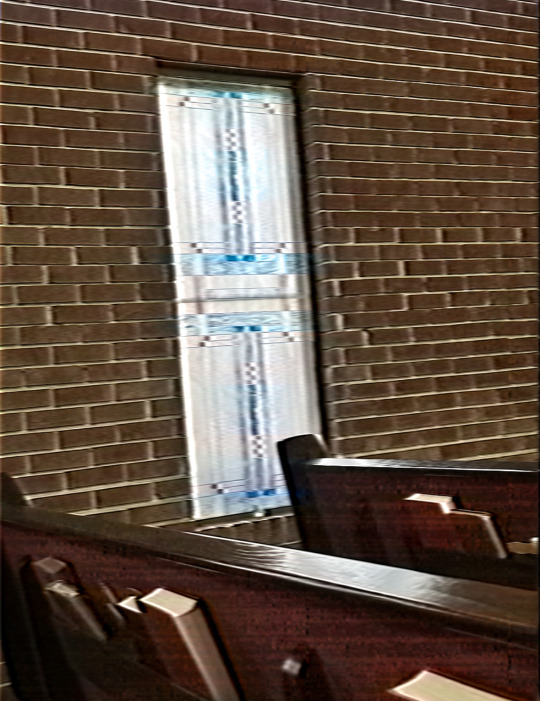
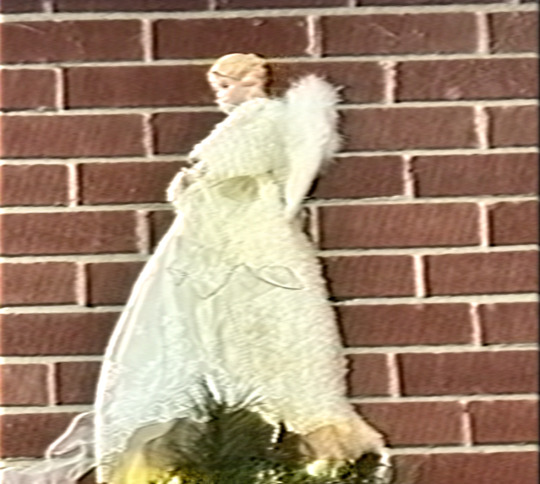
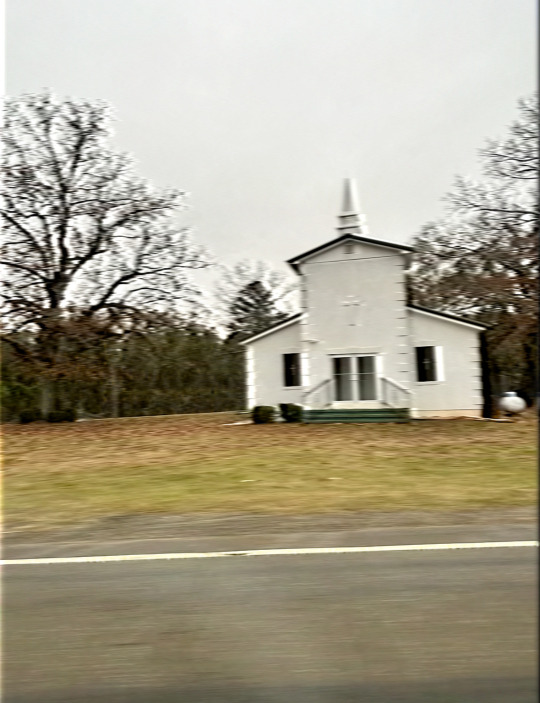
more of my pics :3
#christianity#jesus christ#methodist#old church#religious trauma#ethel cain#mother cain#south georgia#southern gothic
9 notes
·
View notes
Text
Being a Dominion my job is to carry out the will of God. Keep order. Being on Earth has shown the way humans have taken the word of Christ and mashed it into some unjustly, awful thing. I am specifically talking about humans who use “the word of Christ” to bash down those who are Lgbtq+, saying God doesn’t love them. And if it were in Gods will to shun these people for being different, then he wouldn’t have created them. Being sent down to Earth, I have taken on my own Lgbt identity, it makes me feel more like ME. God intentionally created each human as they are, whether that make them good or bad, Lgbt people are part of the good. There are many parts of the scripture that support Lgbtq identities, one of my favorites being “Your love for me was wonderful, more wonderful than that of women.” (2 Samuel 1:26), an interaction between David and Jonathan. To explain the scriptures that condemn people’s identities, most of these are mistranslations and or were added later on, causing confusion and disagreement among followers, which is never good. To carry out the will of God is to carry out love and joy to those who differ from us, He loves us and we should love each other.
13 notes
·
View notes
Text
Lord, You said all I need is a mustard seed of faith and a mustard seed is all I've got. Please don't give up on me.
166 notes
·
View notes
Text
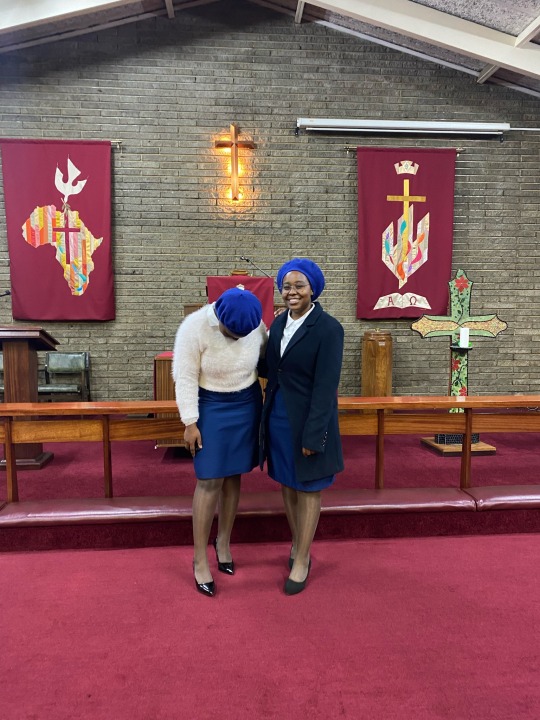

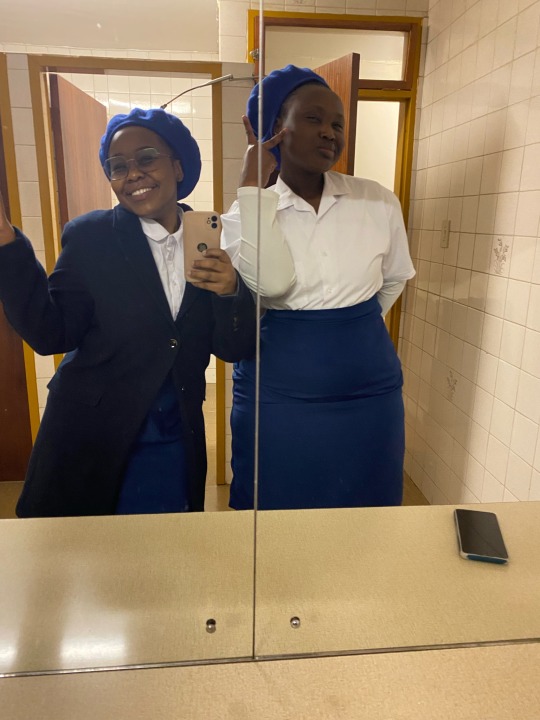
Weekend spiritual revival. One heart, one way ! 💙
#south africa#Methodist#MCSA#kumnandi kaYesu#Christian#african#black and beautiful#Wesley Guild#john wesley#blue train
19 notes
·
View notes
Text
Quote Of The Day
Oh, let no man think his labor of love is lost because the fruit does not immediately appear.
John Wesley, Clergyman/Influencer
View On WordPress
9 notes
·
View notes
Text
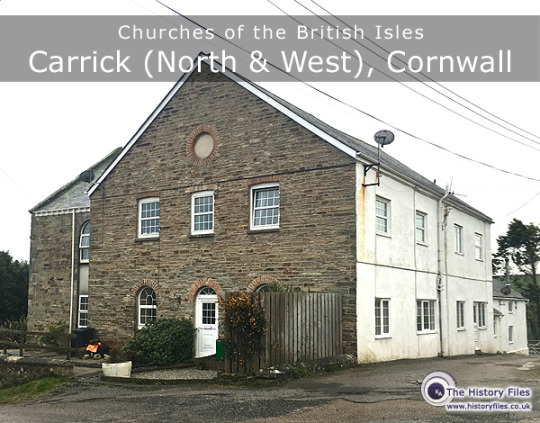
Churches of Cornwall: the former Bolingey Wesleyan Methodist Chapel in Cornwall was built in 1841 before becoming a Methodist church at the 1932 union.
2 notes
·
View notes
Text
youtube
The Virgin Mary and The Protestant Minister
#Mary#Virgin Mary#Blessed Virgin Mary#Blessed Mother#Queen of the Angels#Methodist#preacher#faith#Youtube
4 notes
·
View notes
Text

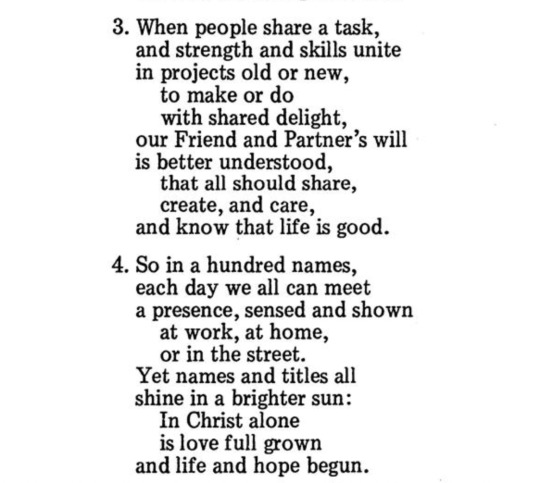
Methodist hymn by Brian Wren (1973)
#hymns#methodist#progressive christianity#christian mysticism#God is Love#the ineffable#hymns to mother
25 notes
·
View notes